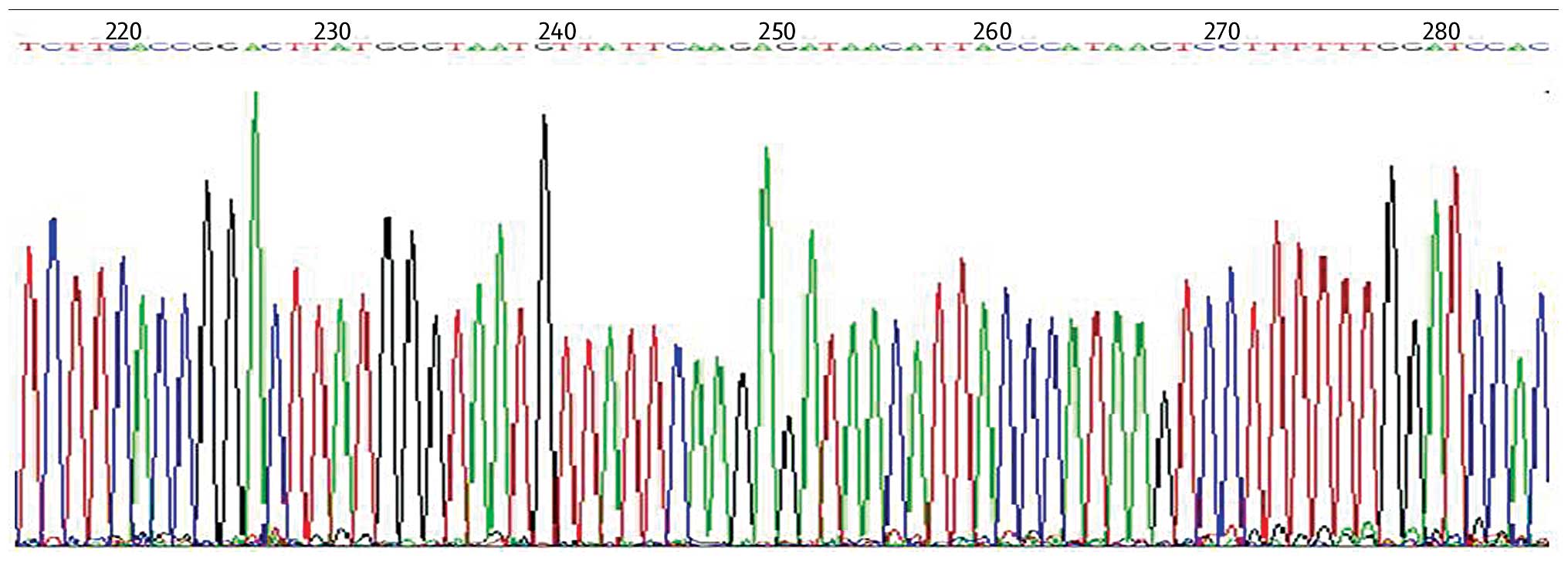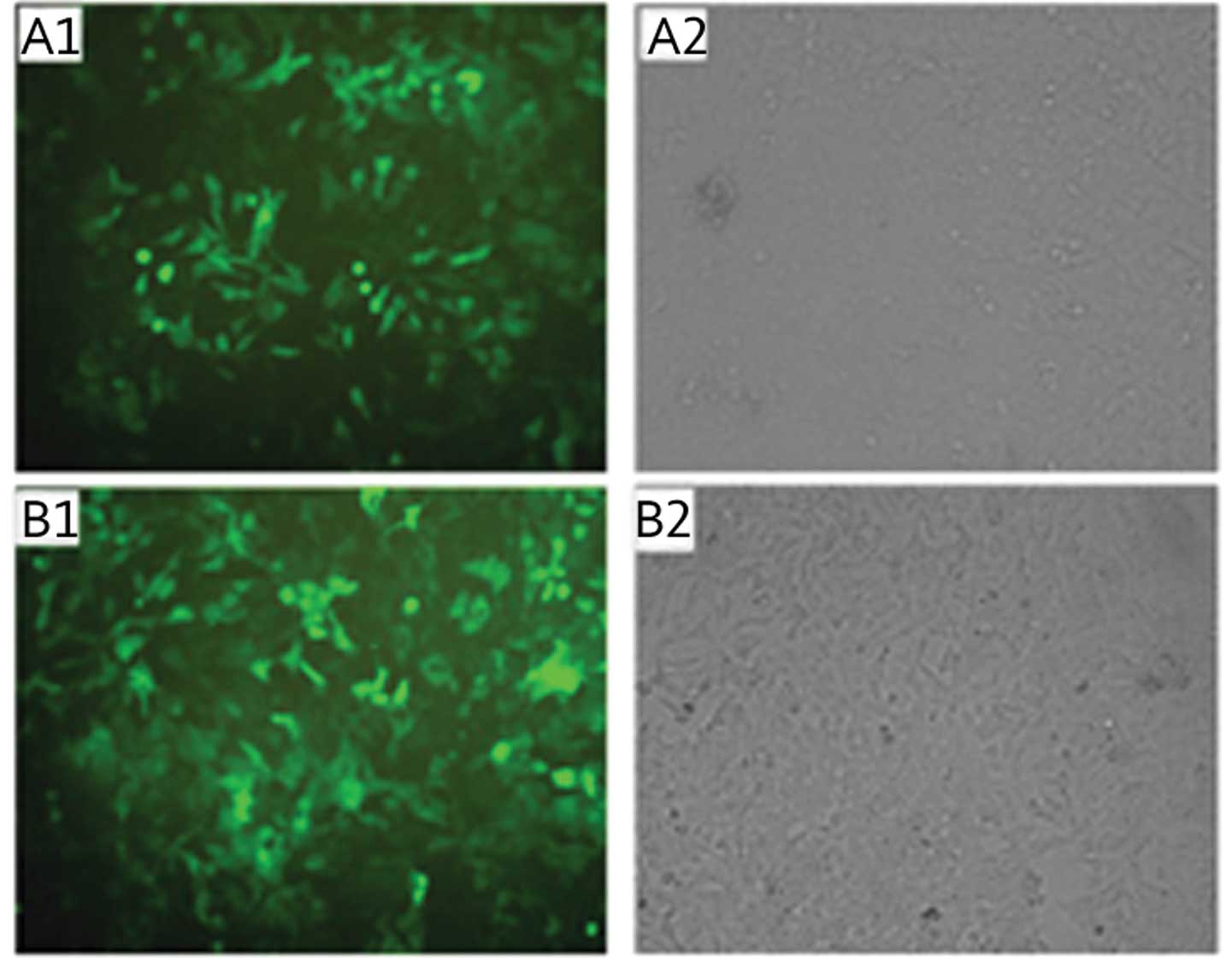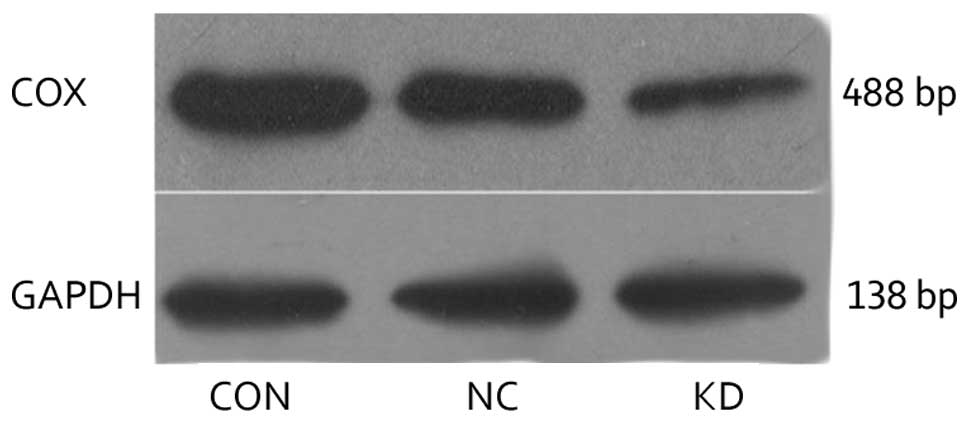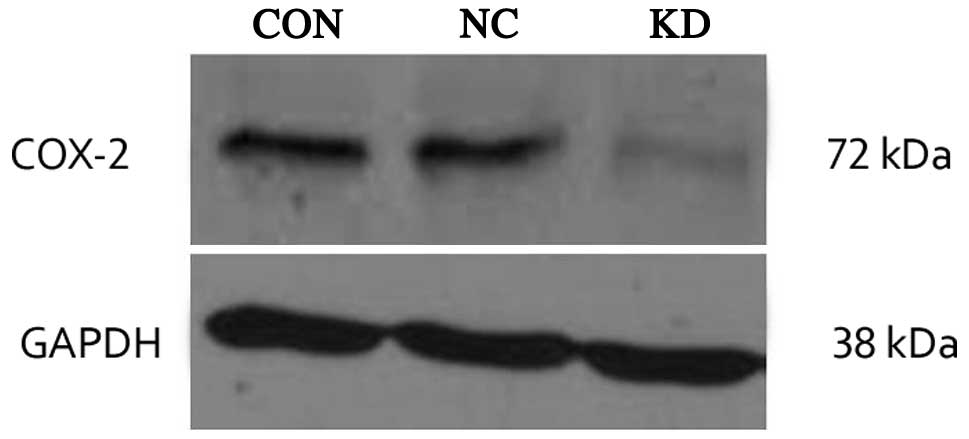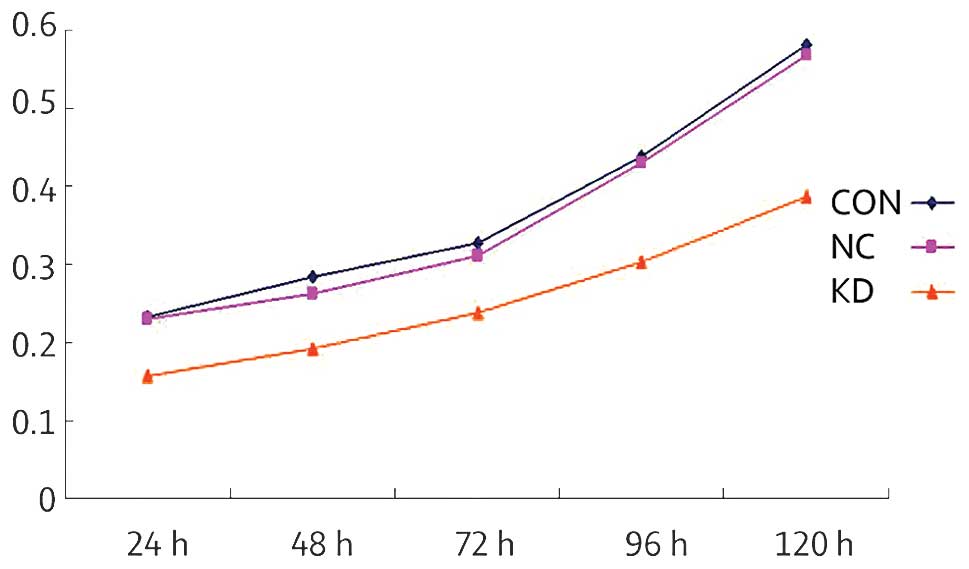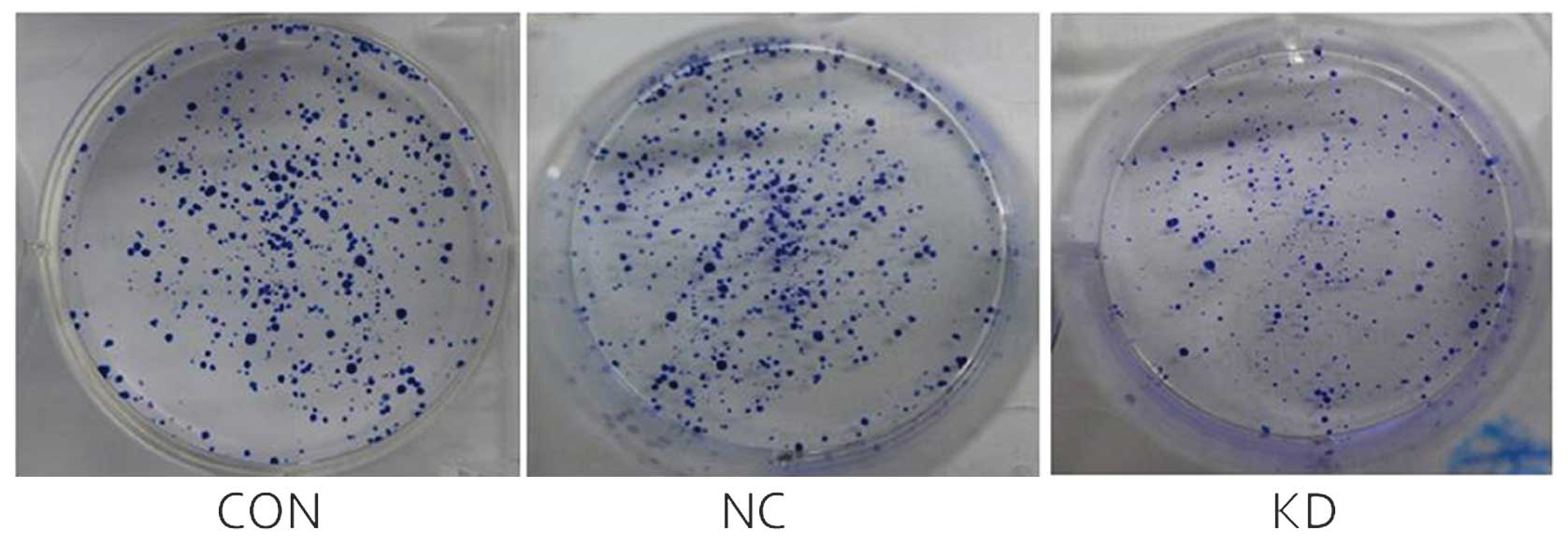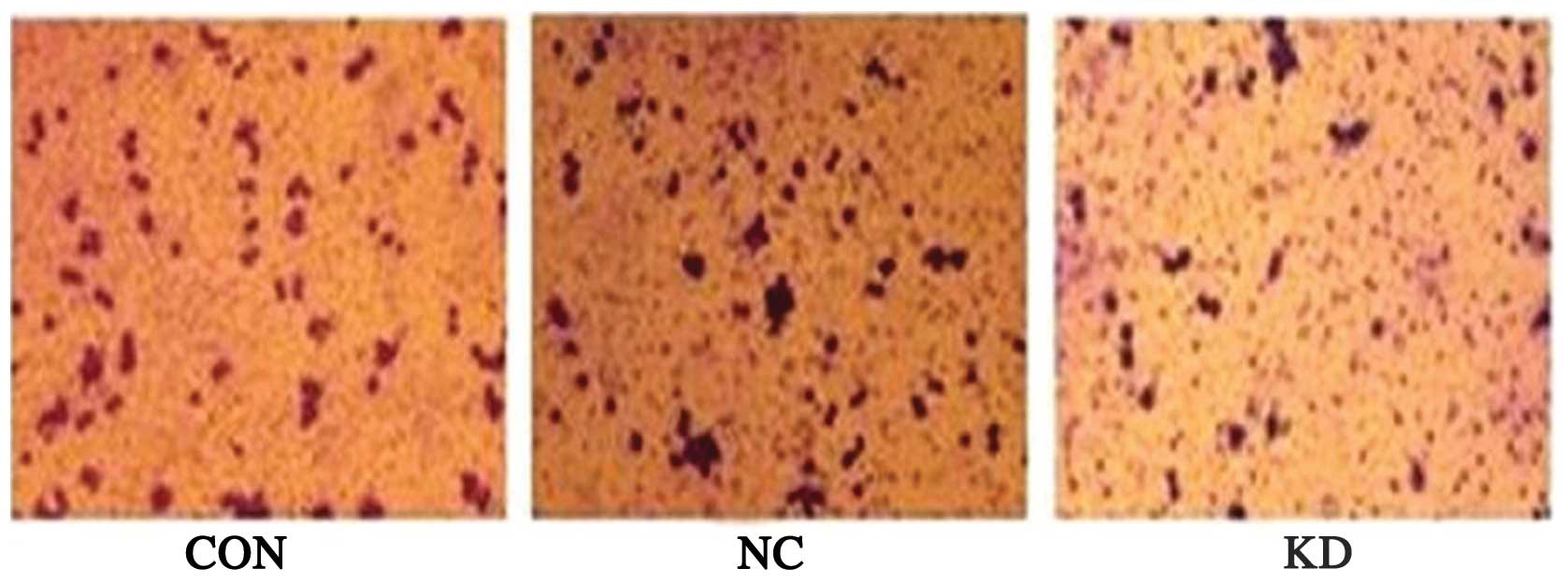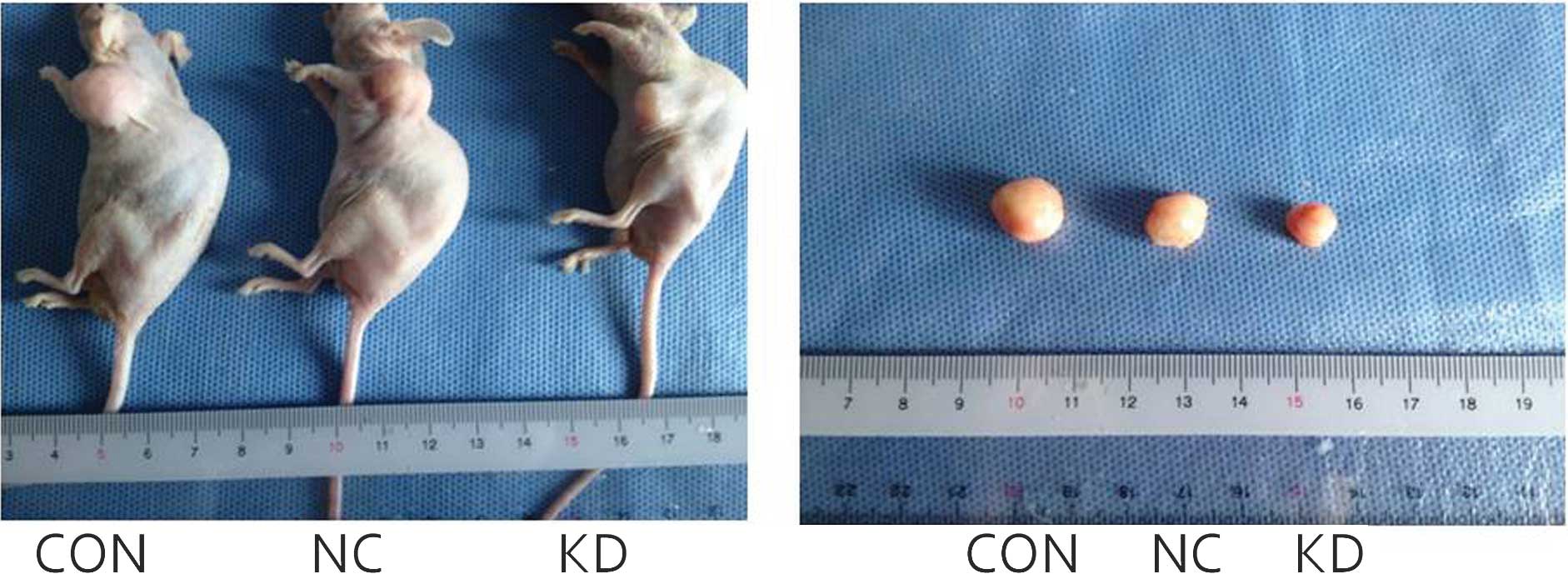|
1
|
Deraco M, Baratti D, Laterza B, et al:
Advanced cytoreduction as surgical standard of care and
hyperthermic intraperitoneal chemotherapy as promising treatment in
epithelial ovarian cancer. Eur J Surg Oncol. 37:4–9. 2011.
View Article : Google Scholar
|
|
2
|
Gómez-Raposo C, Mendiola M, Barriuso J,
Hardisson D and Redondo A: Molecular characterization of ovarian
cancer by gene-expression profiling. Gynecol Oncol. 118:88–92.
2010.PubMed/NCBI
|
|
3
|
Ji B, Liu Y, Zhang P, et al: COX-2
expression and tumor angiogenesis in thyroid carcinoma patients
among northeast Chinese population-result of a single-center study.
Int J Med Sci. 9:237–242. 2012. View Article : Google Scholar
|
|
4
|
Holmes MD, Chen WY, Schnitt SJ, et al:
COX-2 expression predicts worse breast cancer prognosis and does
not modify the association with aspirin. Breast Cancer Res Treat.
130:657–662. 2011. View Article : Google Scholar : PubMed/NCBI
|
|
5
|
Yao L, Liu F, Hong L, et al: The function
and mechanism of COX-2 in angiogenesis of gastric cancer cells. J
Exp Clin Cancer Res. 30:132011. View Article : Google Scholar : PubMed/NCBI
|
|
6
|
Kwagyan J, Apprey V and Ashktorab H:
Linkage disequilibrium and haplotype analysis of COX-2 and risk of
colorectal adenoma development. Clin Transl Sci. 5:60–64. 2012.
View Article : Google Scholar : PubMed/NCBI
|
|
7
|
Chen YF, Luo RZ, Li Y, et al: High
expression levels of COX-2 and P300 are associated with unfavorable
survival in laryngeal squamous cell carcinoma. Eur Arch
Otorhinolaryngol. 270:1009–1017. 2013. View Article : Google Scholar : PubMed/NCBI
|
|
8
|
Thill M, Fischer D, Kelling K, et al:
Expression of vitamin D receptor (VDR), cyclooxygenase-2 (COX-2)
and 15-hydroxyprostaglandin dehydrogenase (15-PGDH) in benign and
malignant ovarian tissue and 25-hydroxycholecalciferol (25(OH2)D3)
and prostaglandin E2 (PGE2) serum level in ovarian cancer patients.
J Steroid Biochem Mol Biol. 121:387–390. 2010.
|
|
9
|
Raspollini MR, Amunni G, Villanucci A, et
al: COX-2 and preoperative CA-125 level are strongly correlated
with survival and clinical responsiveness to chemotherapy in
ovarian cancer. Acta Obstet Gynecol Scand. 85:493–498. 2006.
View Article : Google Scholar : PubMed/NCBI
|
|
10
|
Lee JY, Myung SK and Song YS: Prognostic
role of cyclooxygenase-2 in epithelial ovarian cancer: a
meta-analysis of observational studies. Gynecol Oncol. 129(3):
613–619. 2013. View Article : Google Scholar : PubMed/NCBI
|
|
11
|
Raspollini MR, Amunni G, Villanucci A, et
al: Increased cyclooxygenase-2 (COX-2) and P-glycoprotein-170
(MDR1) expression is associated with chemotherapy resistance and
poor prognosis. Analysis in ovarian carcinoma patients with low and
high survival. Int J Gynecol Cancer. 15:255–260. 2005. View Article : Google Scholar
|
|
12
|
Wang L, Chen W and Yang J: Effects of
cyclooxygenase-2 siRNA-mediated gene silencing on proliferation and
apoptosis of human colon cancer cells. Suzhou Univ J Med Sci.
2:16–19. 2008.(In Chinese).
|
|
13
|
Juncker-Jensen A, Deryugina EI, Rimann I,
et al: Tumor MMP-1 activates endothelial PAR1 to facilitate
vascular intravasation and metastatic dissemination. Cancer Res.
73:4196–4211. 2013. View Article : Google Scholar : PubMed/NCBI
|
|
14
|
Lee JS, Choi YD, Lee JH, et al: Expression
of cyclooxygenase-2 in epithelial ovarian tumors and its relation
to vascular endothelial growth factor and p53 expression. Int J
Gynecol Cancer. 16(Suppl 1): 247–253. 2006. View Article : Google Scholar : PubMed/NCBI
|
|
15
|
Stetler-Stevenson WG and Yu AE: Proteases
in invasion: matrix metalloproteinases. Semin Cancer Biol.
11:143–152. 2001. View Article : Google Scholar : PubMed/NCBI
|
|
16
|
Nguyen DX, Bos PD and Massaué J:
Metastasis: from dissemination to organ-specific colonization. Nat
Rev Cancer. 9:274–284. 2009. View
Article : Google Scholar : PubMed/NCBI
|
|
17
|
Kessenbrock K, Plaks V and Werb Z: Matrix
metalloproteinases: regulators of the tumor microenvironment. Cell.
141:52–67. 2010. View Article : Google Scholar : PubMed/NCBI
|
|
18
|
Xu X, Shen A and Wang Zh: Expressions and
significances of COX-2, VEGF, MMP-9 in epithelial ovarian carcinoma
tissues. Basic Clin Onco. 23:67–469, (In Chinese).
|
|
19
|
Symowicz J, Adley BP, Woo MM, et al:
Cyclooxygenase-2 functions as a downstream mediator of
lysophosphatidic acid to promote aggressive behavior in ovarian
carcinoma cells. Cancer Res. 65:2234–2242. 2005. View Article : Google Scholar : PubMed/NCBI
|
|
20
|
Leung E, McArthur D, Morris A, et al:
Cyclooxygenase-2 inhibition prevents migration of colorectal cancer
cells to extracellular matrix by down-regulation of matrix
metalloproteinase-2 expression. Dis Colon Rectum. 51:342–347. 2008.
View Article : Google Scholar : PubMed/NCBI
|
|
21
|
Pan MR, Chuang LY and Hung WC:
Non-steroidal anti-inflammatory drugs inhibit matrix
metalloproteinase-2 expression via repression of transcription in
lung cancer cells. FEBS Lett. 508:365–368. 2001. View Article : Google Scholar : PubMed/NCBI
|
|
22
|
Li T, Lu J and Zhong Y:
Lentivirus-mediated shRNA interference targeting cyclooxygenase-2
inhibits growth of human non-small cell lung cancer. J BUON.
18:908–14. 2013.PubMed/NCBI
|
|
23
|
Liu Z, Wu XZ, Song R, et al: RNAi-mediated
knockdown of cyclooxygenase 2 inhibits the growth and migration of
SaOS2 human osteosarcoma cells. Zhonghua Yi Xue Za Zhi. 93:1028–31.
2013.(In Chinese).
|
|
24
|
Zhang L, Wu YD, Li P, et al: Effects of
cyclooxygenase-2 on human esophageal squamous cell carcinoma. World
J Gastroenterol. 17:4572–80. 2011. View Article : Google Scholar : PubMed/NCBI
|















